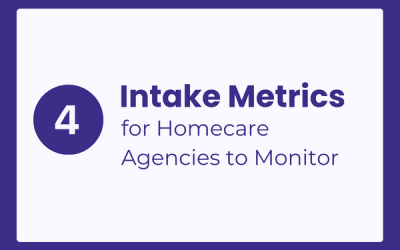Written by Linda Durzieh, Director at Trusted Surplus
In homecare, it’s vital to understand financial planning tools like pooled income trusts. They help maintain the financial health of individuals while receiving healthcare.
Pooled Trusts play a crucial role in the realm of homecare services. For elderly and disabled members who need homecare, this program is truly a blessing. The cost of an aid can burn through an individual’s savings, leaving them with nothing. The remedy to that is Medicaid. Medicaid is the most reliable health insurance in New York. For qualified individuals, it will pay for homecare needs while allowing the individual to keep their income.
Often, individuals who require homecare services earn too much to qualify for Medicaid coverage, yet they don’t earn enough to afford homecare services independently. That is why pooled income trusts are necessary. This innovative solution allows individuals to keep their income while remaining eligible for Medicaid. In this blog, we will share all about Pooled income trusts.
History
The Pooled Income Trust was established by Congress in 1993 as an exception to the Omnibus Budget and Reconciliation Act amendments. This authorization allows the use of Supplemental Needs Trusts to benefit seniors or individuals with disabilities of any age.
Originating from traditional trust structures, pooled income trusts have adapted to today’s healthcare practices. They offer a unique solution for protecting excess income and ensuring eligibility for government benefits. The impact and importance of pooled income trusts in financial planning are substantial, offering a valuable tool for preserving excess income and accessing critical care services.
What is a Pooled Income Trust?
A pooled income Trust provider is a third-party bill-paying company that helps members keep their excess income while qualifying for Medicaid benefits, one being homecare. Together with the beneficiary, the pooled trust allocates the excess income, also known as surplus (the amount that exceeds the limit), towards living expenses.
How Does a Trust Affect One’s Medicaid Benefits?
There is the misconception that “I make too much, and I do not qualify for Medicaid.”
A trust can affect your Medicaid benefits in homecare by helping you maintain eligibility. By placing excess income in a pooled income trust, you can preserve this income while still qualifying for Medicaid benefits. This is because the funds in the trust are not counted as available income, thus allowing you to meet Medicaid’s financial eligibility criteria.
In New York state, an individual qualifies for Medicaid if they have a monthly income of $1,732 or less, and a married couple qualifies if their combined monthly income is $2,351 or less.
Case Study
Mr. Smith is seeking homecare. He earns $2,500 monthly from social security and another $1,000 from his pension, totaling $3,500 per month. His monthly income exceeds the income limit for Medicaid by $1,768. Enrolling in a pooled income trust can allow Mr. Smith to retain the $1,768 and still qualify for Medicaid benefits.
After setting up a pooled trust account, Mr. Smith will deposit $1,768 into the trust account each month. With the pooled trust, Mr. Smith can allocate these funds towards his living expenses. These expenses include rent, utilities, food, and clothing but exclude items such as liquor, gambling, charity, secondary health insurance, and tobacco. Once Medicaid verifies that these funds are being used for essential living expenses, they will grant eligibility for Medicaid coverage. This will enable Mr. Smith to access its benefits, including homecare coverage.
Benefits
Pooled income trusts offer numerous benefits, particularly to older people or individuals with disabilities, by providing a way to preserve excess income while maintaining eligibility for Medicaid and other government benefits. By depositing excess income in a trust, individuals can access essential homecare services without compromising their financial security. Pooled income trusts also benefit homecare providers by simplifying billing processes and ensuring prompt payment for services rendered. Paying out-of-pocket for homecare services can create a financial burden for individuals and their families. Establishing a Pooled Income Trust allows members to retain their income and use Medicaid to cover medical expenses, including homecare.
Criticisms
Despite their benefits, pooled income trusts come with challenges and criticisms ranging from administrative complexities to possible limitations on fund disbursement. The process can be complex for patients, families, and providers. Therefore, it is vital to choose a pooled trust company that can guide individuals through the process and cater to their needs.
Conclusion
In conclusion, pooled income trusts are a valuable financial planning tool in homecare. They offer a way to preserve excess income and access essential care services while maintaining eligibility for government benefits. Understanding the history, data, benefits, drawbacks, and future directions of pooled income trusts can help individuals make informed decisions to protect their financial well-being and ensure access to quality care services. As we adapt to changing healthcare dynamics and embrace innovation, pooled income trusts continue to be a trusted ally for achieving optimal financial and healthcare outcomes in the homecare sector.
How can I find out more about setting up a trust?
For more information, please reach out to Trusted Surplus Solutions Pooled Income Trust at (718) 970-7878 or visit our website at trustedsurplus.org. At Trusted Surplus Solutions, we understand how overwhelming this process can be. Our agents will hold your hand every step of the way. Join the Trusted family and let us take care of you!


